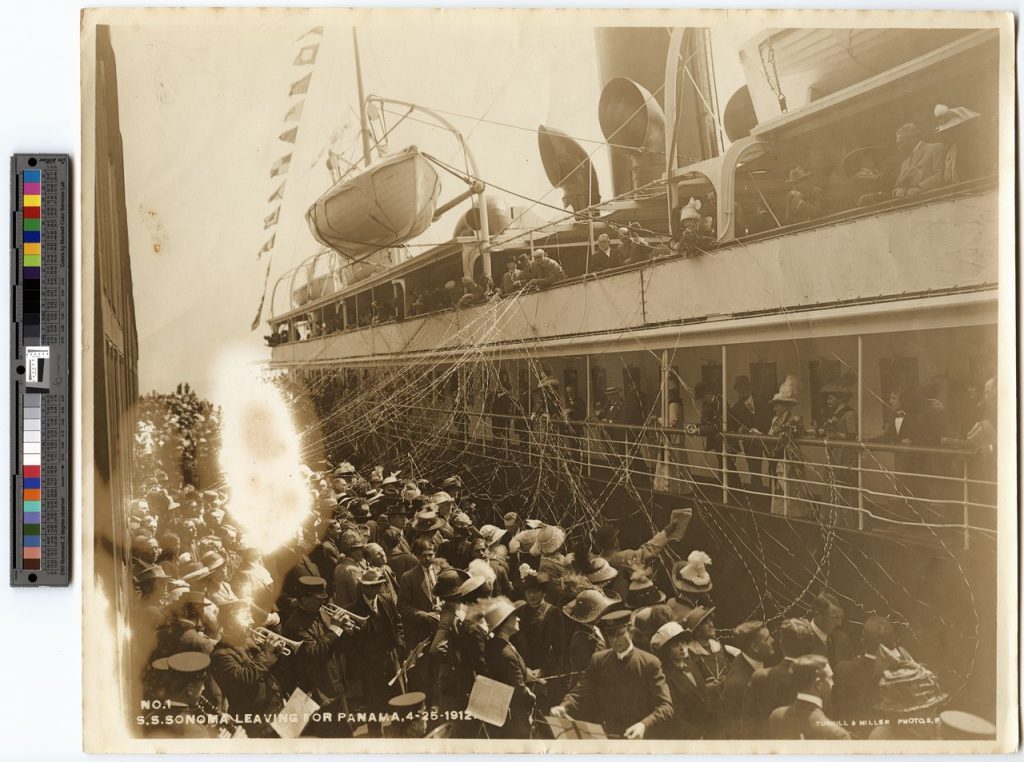By Nancy Finlay
In the summer of 1901, a young Black woman from Connecticut stepped off the steamship Sonoma in Honolulu, Hawaii. Originally from Hartford, Helen James’ career took her all the way to the Pacific to teach and run an orphanage.
Hartford to Hawaii
Born in 1876, Helen L. James was the daughter of Anna and Willis S. James, the janitor at Hartford’s Second North School. Following her studies at the Hampton Institute in Virginia, James taught at the Institute’s Whittier School until she decided to accept a job at the Kamehameha School for native Hawaiians in Honolulu.
James’s move from the Hampton Institute to Hawaii was not by any means a random act. Charles Chapman Armstrong—the founder of the Hampton Institute and a son of American missionaries—was born in Hawaii. In addition, Charles Dyke—the principal of the Kamehameha School when James arrived—previously served as the principal of Hampton’s Whittier School.
Working in the school kitchen, James quickly fell in love with Hawaii, delighted by the climate and the natural beauty of the scenery. Within the year, she took a position at the Kona Orphanage on the isolated west coast of Hawaii—a rough 18-hour steamship voyage from Honolulu. Alice Beard, a wealthy Californian, founded the orphanage in 1899 to serve as a foster home for the offspring of alcoholics, opium addicts, prostitutes, and others who found themselves unable to care for their children. In 1902, the home’s residents ranged in age from 2 to 17 and included Chinese, Japanese, Puerto Rican, Norwegian, Portuguese, American, and native Hawaiian children. Beard hired James as a teacher and assistant administrator and the young woman soon made herself indispensable.
When Beard became ill in 1903 and returned to California to recuperate, she left James in charge of the orphanage—responsible for teaching classes, overseeing the kitchen and dining room, paying bills, and writing monthly reports. James also wrote articles for the Hartford Courant, the Honolulu Advertiser, and the Southern Workman (the journal of the Hampton Institute), describing the orphanage and soliciting funds for its support and books for its library until she developed dengue fever and began to make plans to leave Hawaii.
Returning to the Continental United States
James returned home and continued her education at Atlanta University, where she studied with W.E.B. DuBois. She taught at the Penn School—a school for African Americans (originally the children of freed Gullah slaves) on St. Helena Island, off the coast of South Carolina—then at Florida Agricultural and Mechanical College for Negroes (now Florida A&M, a historically Black university located in Tallahassee).
On June 1, 1910, Helen married Frank Chisholm at Putnam Elms—the summer home of her friend and patron, Emily Malbone Morgan located in Brooklyn, Connecticut. Frank was a graduate of the Tuskegee Institute and served as the personal assistant to Booker T. Washington until Washington’s death in 1915. He continued to work as the northern representative for the Tuskegee Institute for more than 50 years, recruiting students and organizing tours for the Tuskegee Jubilee Singers. The Chisholms eventually purchased a house in Old Saybrook, near the home of Helen’s sister Anna, the first African American pharmacist in Connecticut. Helen continued to work as a teacher and both Helen and Frank wrote articles and letters to the editor of the Hartford Courant advocating for equal rights and educational opportunities for people of color.
Nancy Finlay grew up in Manchester, Connecticut. She has a BA from Smith College and an MFA and PhD from Princeton University. From 1998 to 2015, she was Curator of Graphics at the Connecticut Historical Society.









